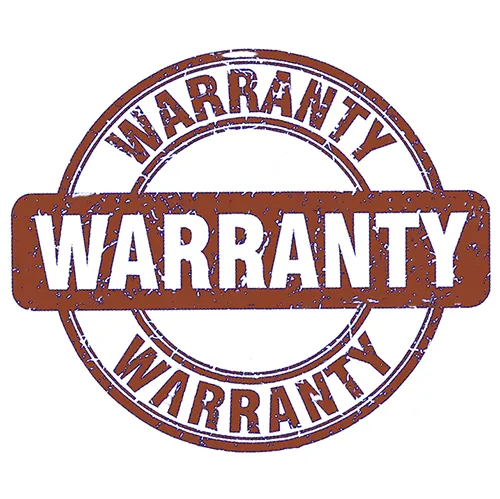
Written by Chris on March 22, 2023
Updated on: 19 July 2023
Portable Generator Warranties in the USA
Introduction to Portable Generator Warranties in the US
The information we provide here relates to the brands we cover and is for information purposes only. It is your responsibility to inform yourself about the specific terms and conditions related to any product you are thinking about buying.
That said, we hope the following will give you at least a taste of the sort of things a portable generator warranty may or may not include.
So let’s get to it.
First, you may have seen our reference to warranties in our About page. Here we delve a bit deeper into the subject.
When buying a product, we often think we are covered because we have a warranty should something go wrong, at least for a specific period.
While all of this may be true, a read through various warranties shows that it’s not always the whole story.
Warranty Periods
Warranties for portable generators used in a consumer environment vary by manufacturer. In general, they last for 2 or 3 years sometimes from shipment date or starting from the date you register the product, which you may be required to do by the manufacturer within a short period after purchase. A consumer environment means personal residential household use and differs from commercial use where the conditions are generally more restrictive.
Warranties are more often than not restricted to original owners who must have bought the unit from an authorized dealer.
Emission warranties, which form part of the warranty, are subject to different conditions and lengths, and we won’t go into these here.
Here we show the basic warranty information for the brands we have looked at, with links to the company warranty statements or information.
Briggs & Stratton refer owners to the manual associated with the portable generator purchased. Their portable generator warranties appear to offer 3 years consumer use and 1 year commercial use.
Champion Power Equipment extended their warranty for portable generators from 2 to 3 years in January 2017.
DuroMax warrant their products for 3 years residential use but reduce this to 1 year for “unusually heavy” or commercial use. They do not, however, make clear what they would regard as unusually heavy use.
Generac warrant their portable generators for 2 years in a residential environment and 1 year or 1000 hours, whichever comes first, in a rental or commercial setting.
Honda warrant most of their portable generators for 3 years, be it for residential or commercial use (there are a few exceptions).
WEN’s “Warranty Statement” is general in nature and is not specific to their portable generators. Their publicity says, however, that residential use is warranted for 2 years from the date of purchase or 500 hours, whichever comes first.
Westinghouse’s warranty covers parts and labor repair expenses for 1 year from date of purchase and replacement parts for 2-3 years from date of purchase.
Warranty Cover
All manufacturers say that their warranties only cover units purchased from authorized outlets or dealers. During the warranty period a manufacturer usually undertakes at their discretion or option to repair or replace, free of charge, any part that is, or has been confirmed by the manufacturer or one of their authorized dealers, defective in material and workmanship or both. You may be required to produce proof that you have maintained the product in accordance with the manual’s instructions to qualify under a warranty. Not many of us do this, but it’s clear that it makes good sense for you to keep a meticulous record of all the maintenance you have done, with receipts for consumables such as oil and filters.
Warranties and Ownership
A warranty is normally limited to the original buyer, and will rarely cover second-hand equipment, even if it’s within the warranty period. Honda appear to be an exception, and they will honor a warranty for every owner provided it’s within the warranty period, unless noted otherwise.
Warranty Exclusions
A warranty may also say that its terms don’t apply in the case of inappropriate use, neglect, or abuse. Such inaction or action may be deemed to have taken place if the buyer hasn’t followed the manual’s instructions. This might include improper maintenance, use of stale or inappropriate fuel, and normal wear and tear. It would also include other accidental damage to the product and unauthorized modifications, as well as using third-party parts.
Champion Power Equipment remind owners that “products with mechanical and electrical components need periodic parts (replacement?) and service to perform well. The warranty does not cover repair when normal use has exhausted the life of a part or the equipment as a whole”. In other words, normal use over the period of the warranty can wear out parts, which if not exchanged periodically, could cause the product to fail. They mention wear parts as the air filter, oil filter, O-rings, and batteries (consumable parts). Similar conditions appear throughout other warranties, though Honda appear to be the only one to warrant their batteries for 12 months residential use.
Warranties will generally also exclude cosmetic defects, acts of God and other force majeure events beyond a company’s control. Westinghouse are more specific in saying these events include, but are not limited to, collision, theft, vandalism, riot, war, fire, freezing, lightning, earthquake, windstorm, hail, water, flood, tornado, or hurricane. It may be worth looking at whether your household insurance covers any of these eventualities and, if not, what else you could do to cover yourself.
Some of our Comments
Most of the above is reasonable and we can understand a manufacturer’s stipulation that only authorized service dealers may carry out repair work. But it’s not so clear why the costs involved in sending a product for repair or replacement while under warranty have to be paid for by the buyer. Westinghouse do not say this specifically, instead commenting that you must arrange for pick-up or return of your generator after the repairs have been made, which amounts to the same thing.
